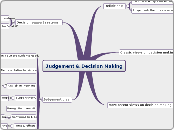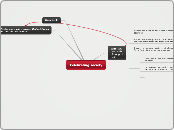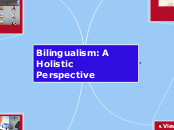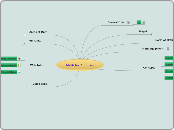Big dabate over judgement in academia
Judgement & Decision Making
More recent views on decision making
Situation awareness
Projection of their status in the future
The comprehension of their meaning
perception of elements in the environment given time/space
Naturalistic (Klein)
Fireman
Study of how people make decisions in complex, varied in situ environments
Ethnography
Judgement bias
Sensitive to loss than gain
Recency effect
tend to remember items/actions at the end
Primacy effects
tend to remember items/actions at the beginning than the end
e.g. used in the classroom
Confirmation bias
memory is distorted by expectations
Recognition heuristic
Support theory
an event will appear more likely if it is supported by a description
why? it may draw attention to what could happenor memory limitations may mean people do not rememer al of the relevantinfo if it is not supplied
Availability heuristic
estimating requencey of events based on how easy it is to recall the relevent info from LTMe.g. letter r, more start of words, or third letter words.
Representative heuristics
e.g. if someone has learned to use a button by double clicking,they will continue to do this?
events that are representatyive or typical of a class are assigned a high probabilityof occurance
Ignoring base rates, only surface evidence used,
Decision support systems
Cognitive tools aim to support adaptive decision making rather than replace decision maker e.g. spreadsheets for 'what-if'
Cognitive prothesis aims to reduce poor decision making of the human (traditional export systems)
Classic views on decision making
Simons Satisficing model(Descriptive)
heuristics can lead to biases or poor decisions
in line with that we have limited cognitive resources & time
generate alternatives until a good enough one is found. might not be best
opt for a choice that is good enough
Bayes Theorem(Normative)
We don't know the probabilities
futher studies show we tend to forget / ignore the base rate
probabilties of base rate and likelyhood ratio.
Definitions:
Judgement: the process used in drawing clusions from the knowledge and evidence available
concerned with accuracy
Decision Making: Concerned with choosing among options
concerned with potential consequences









